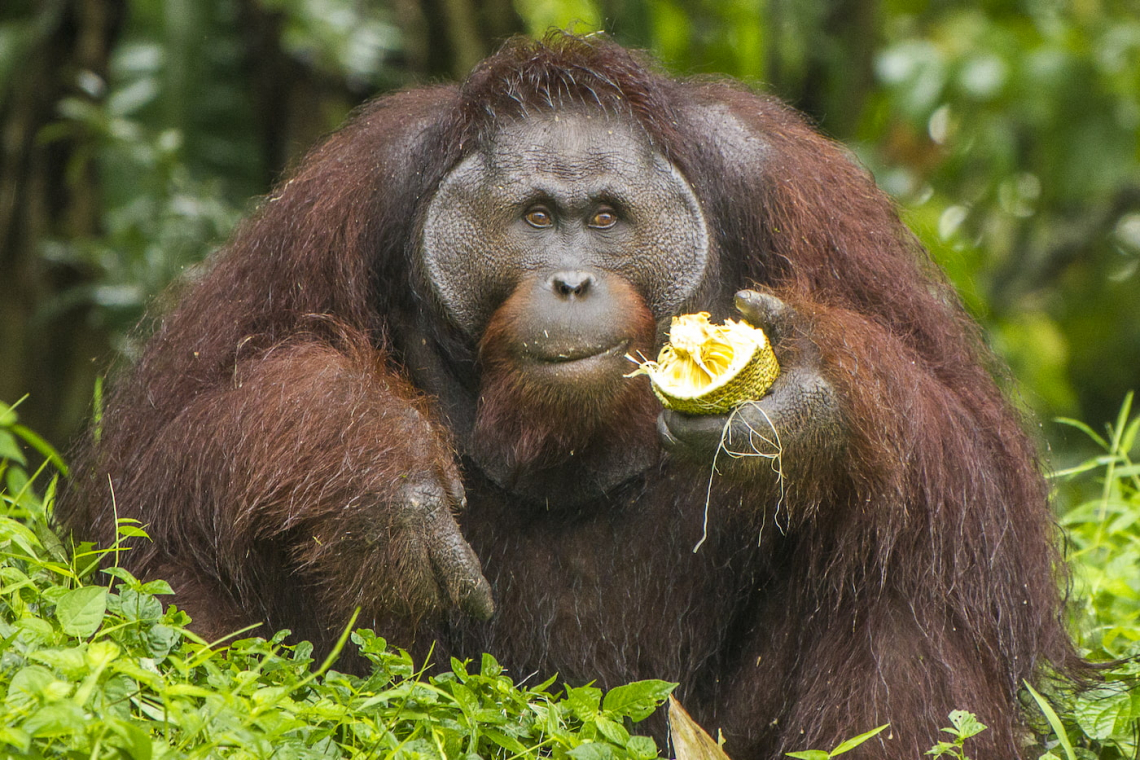For 14-year-old Nigel and other orangutans who have fallen victim to the illegal wildlife trade, freedom is a distant memory. Torn from his mother’s arms as an infant, Nigel has spent most of his life in captivity. He was hairless and starving when he was rescued in 2010 from a filthy metal cage in a zoo, where he’d lived in cramped quarters with two other orangutans, Hercules and Antak. For one of the most intelligent beings on the planet, this must have been hell on earth.
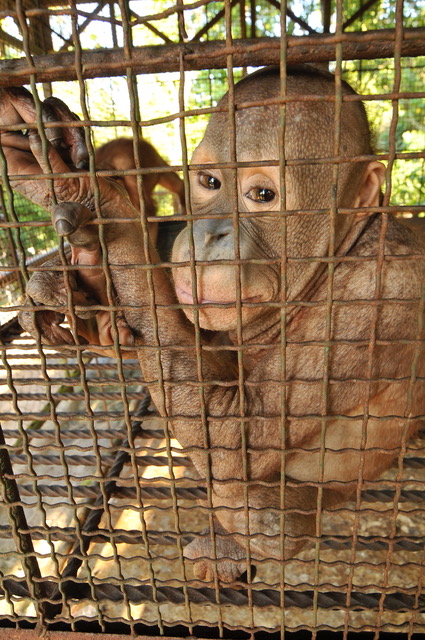
Nigel in the metal cage at the zoo before he was rescued
Orangutans are Critically Endangered and are a protected species under Indonesian law, but that doesn’t stop wildlife traffickers from smuggling them out of the forest and into backyard cages, homes and zoos across the world. Extinction is death by a thousand cuts, and this highly intelligent, creative species is dying, one by one, as the world watches.
The wildlife trade is fueled by money, social media, and a desire for humans to have ‘exotic pets’ to boost their social currency. But in Indonesia, where orangutans are endemic, voices are being raised more and more each year to stop this cruel illegal trade.
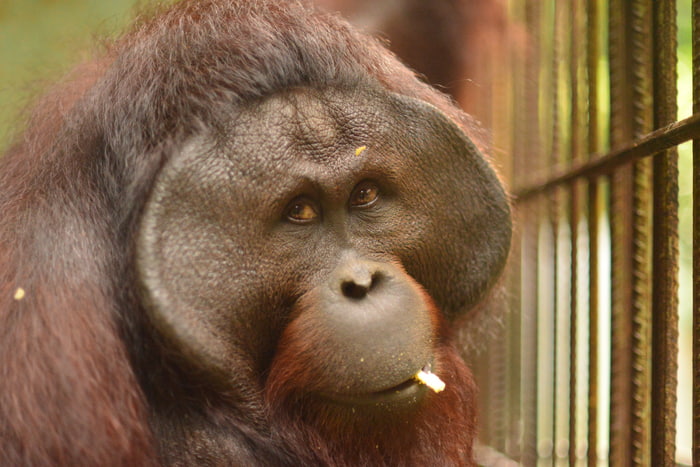
Nigel in an enclosure at a rescue centre prior to his release into the wild
The Orangutan Project operates two rescue alliances with local partners: the Bornean Orangutan Rescue Alliance and the Sumatran Rescue Alliance. These alliances rescue Critically Endangered orangutans from the illegal trade and take them to their rescue centres, where they undergo years of rehabilitation and Jungle School, learning how to climb trees, build a nest, and forage for food.
Without organisations like The Orangutan Project, these ‘people of the forest’ would be dying even faster, with more and more captured each year by unscrupulous criminal syndicates. Nigel, who is now a glorious adult male with long red hair and impressive cheek pads, is one of many orangutans the organisation and their partners have rescued over the years.
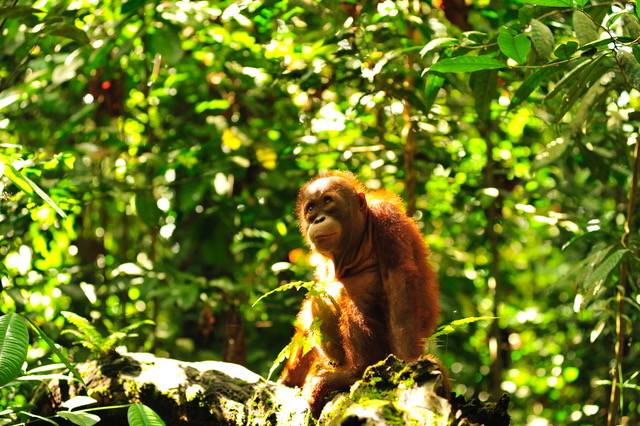
Nigel as a youngster during Jungle School
At the heart of their operations, The Orangutan Project and their partners have a goal of legally protecting eight key ecosystems across Sumatra and Borneo. Then, and only then, can they reintroduce orangutans with confidence that their numbers will rebound in the wild. It’s not impossible to turn the situation around for Critically Endangered species; it’s been done before. Although numbers are still low, species such as gray wolves in the US and the Northern brown kiwi in New Zealand have been removed from the endangered list, due to massive conservation efforts in each country.
This is what The Orangutan Project is aiming to achieve. The Indonesian Ministry of Forestry has granted the Bornean Orangutan Rescue Alliance 20,000 hectares within the 260,000-hectare Busang Ecosystem in East Kalimantan. Approximately 620 orangutans live within that ecosystem at the moment, and the hope is to increase their numbers to 2,000 as a key strategy to preserving the species.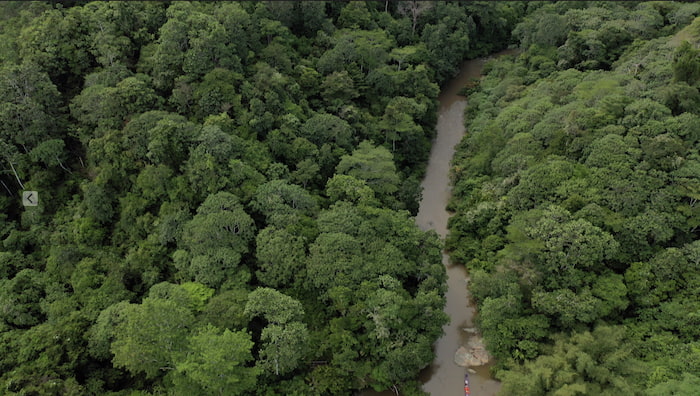
The Busang Ecosystem, where Nigel will soon taste freedom
Nigel is on the verge of being released into this vast ecosystem, where there is ample room for him and the other males to spread out. Orangutans are semi-solitary, and males especially need huge tracts of forest in which to roam and establish their own territories. This is one of the key challenges with saving the species: the only way to stop orangutans from going Extinct is to ensure there is enough lowland forest to accommodate them all.
If Nigel hadn’t been rescued when he was, there’s a high likelihood he would have died of malnutrition, along with Hercules and Antak. To save an entire species, we must save every individual possible. When extinction is the next step, every life saved can help boost numbers in the wild, which is exactly what The Orangutan Project hopes Nigel and his friends will do.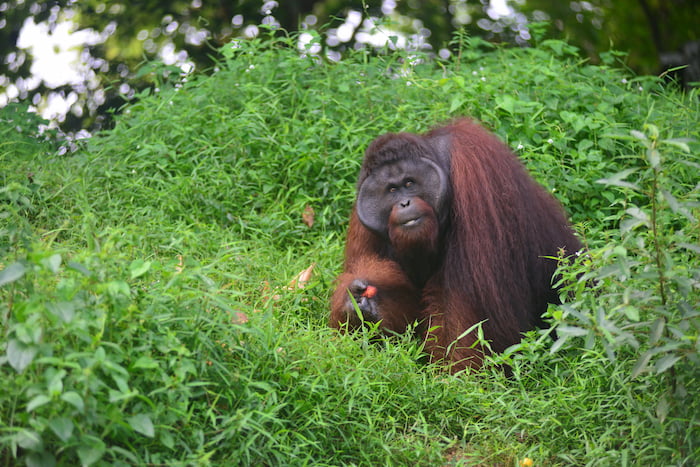
Nigel has been on a pre-release island for a year, and he’s ready for forest freedom!
And now, freedom is within reach. Within the next month or so, 12 years after he was rescued from the filthy cage and given a new life, Nigel will be released to the Busang Ecosystem. He will be free from metal cages, free to roam, free to be the wild person of the forest he was always meant to be. Visit The Orangutan Project website to read more about Nigel and the other orangutans being returned to the forest.

